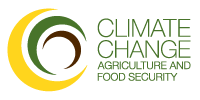The Climate Change, Agriculture and Food Security (CCAFS) program of the Consultative Group on International Agricultural Research (CGIAR) has released two reports: "Mechanisms for agricultural climate change mitigation incentives for smallholders;" and "Towards Policies for Climate Change Mitigation: Incentives and benefits for smallholder farmers."
 2 March 2012: The Climate Change, Agriculture and Food Security (CCAFS) program of the Consultative Group on International Agricultural Research (CGIAR) has released two reports that describe the obstacles faced by smallholder farmers in participating in climate change mitigation activities, and the finance mechanisms that may be available to engage these farmers.
2 March 2012: The Climate Change, Agriculture and Food Security (CCAFS) program of the Consultative Group on International Agricultural Research (CGIAR) has released two reports that describe the obstacles faced by smallholder farmers in participating in climate change mitigation activities, and the finance mechanisms that may be available to engage these farmers.
In “Mechanisms for Agricultural Climate Change Mitigation Incentives for Smallholders,” CCAFS stresses the important role of smallholders in climate change mitigation and adaptation, particularly considering the large area of land under their management. The report also identifies the risks posed by climate change to smallholders. It concludes by outlining a framework for integrating smallholders into large-scale mitigation activities, and recommends actions for a variety of stakeholders. The framework stresses the need to: identify areas with the highest greenhouse gas (GHG) reduction potential and relevant stakeholders; examine local socioeconomic conditions; and consider the potential for GHG mitigation to displace production. The paper provides recommendations for government agencies in developing countries, multilateral agencies, research agencies, donors, not-for-profits, private finance institutions, and carbon finance and policy makers.
The second report, “Towards Policies for Climate Change Mitigation: Incentives and Benefits for Smallholder Farmers,” concludes that climate finance can be used to overcome barriers that smallholders face to adopting sustainable agricultural practices. It underscores the mitigation opportunities to sequester carbon in soil and agricultural landscapes, noting barriers to adoption by smallholders such as: poorly functioning input and output markets; weak local institutions and infrastructure; inadequate extension systems; and a lack of credit and insurance. The report outlines examples of how climate finance can support payment for ecosystem services, carbon markets, supply chain support or measures that reduce investment risk and attract direct investment into the change of practices. The report stresses the need for financial incentive programmes to be consistent with readiness activities at the institutional and regulatory levels. In light of the limited funds, it concludes by highlighting the importance of involving the private sector. [CCAFS Press Release, 6 February 12] [Publication: Mechanisms for Agricultural Climate Change Mitigation Incentives for Smallholders] [CCAFS Press Release, 2 March 12] [Publication: Towards Policies for Climate Change Mitigation: Incentives and Benefits for Smallholder Farmers]